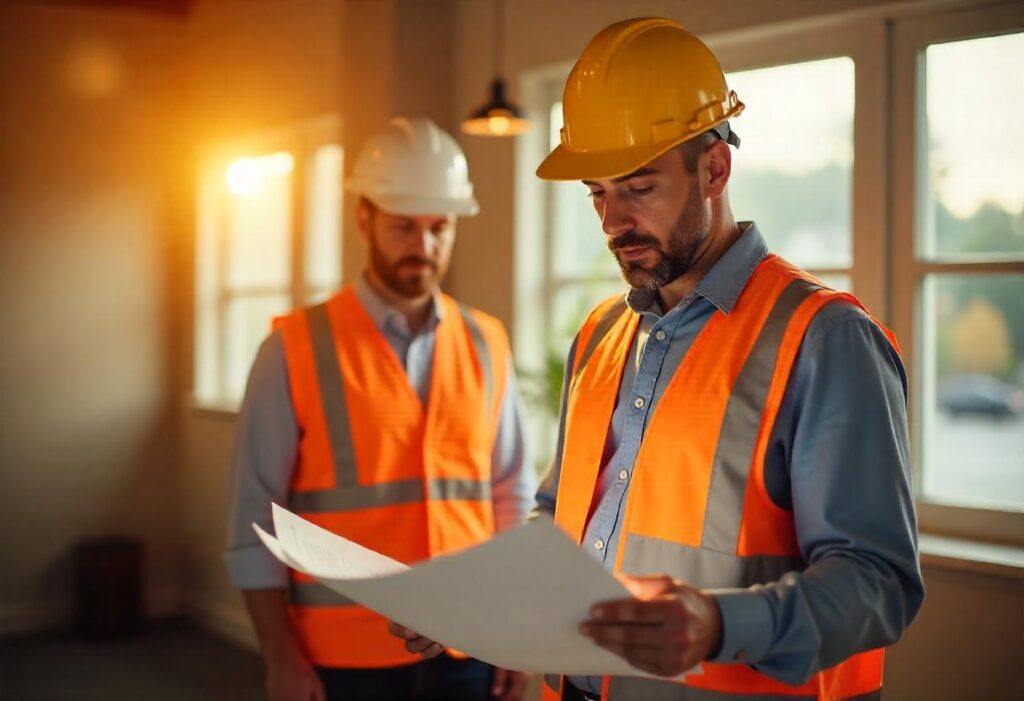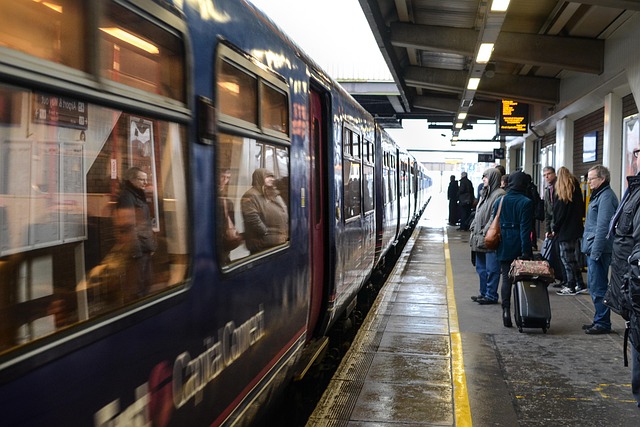
Train wrecks can be devastating, resulting in serious injuries, emotional trauma, and significant financial losses. Whether you are a railroad employee, a train passenger, or someone affected by a train-related accident, navigating the legal implications can be extremely difficult. It is crucial to have an experienced railroad accident lawyer to help you secure the compensation you deserve for your medical expenses, lost wages, and other damages.
This detailed guide provides all the necessary information you need regarding railroad accident lawyers in the United States, including the importance of having one, tips for choosing the right attorney, and an overview of the legal process for railroad accident cases.
What Is a Railroad Accident Lawyer?
A railroad accident lawyer is a type of personal injury lawyer who focuses on helping individuals who have been harmed in train accidents. These legal professionals are well-versed in the various federal and state laws that govern railroads, including the Federal Employers’ Liability Act (FELA), along with concepts of negligence and liability. Their primary goal is to help victims secure financial compensation for any damages they have suffered as a result of train accidents caused by negligence, defective equipment, or unsafe working conditions.
Lawsuits pertaining to railroad accidents are intricate, involving many parties such as railroad companies, manufacturers of equipment, and government entities. A Railroad Accident Lawyer navigates these complexities, gathers evidence, acquires expert opinions, and builds a strong case against those responsible.
Why You Need a Railroad Accident Lawyer
There are several ways in which railroad accidents can happen, including:
- Train derailments: Resulting from track defects, over-speeding, or mechanical faults.
- Collisions: Train-to-train, train-to-car, or train-to-pedestrian crashes.
- Workplace accidents: Railway workers injured because of unsafe working conditions or inadequate training.
- Injuries to passengers: Slip falls, derailment, or sudden braking that impacts passengers.
- Level crossing incidents: Accidents at railway level crossings because of absent signals or gates.
- Chemical exposure: Leaks or spills of toxic materials carried by trains.
These accidents often have grievous outcomes such as:
- Medical expenses: Hospitalization for fractures, burns, traumatic head injuries, or spinal cord injury.
- Lost earnings: Not being able to work while recovering or because of total disability.
- Emotional distress: Depression, PTSD, or anxiety after a traumatic crash.
- Long-term care: Continued therapy, rehabilitation, or adaptive equipment for extensive injuries.
A Railroad Accident Lawyer guides you through the legal process to recover compensation for these injuries. They do the negotiations with insurance firms, read incomprehensible railroad laws, and, if needed, take your case to court to obtain reasonable compensation.
Types of Railroad Accidents and How They Have Legal Implications
Accidents on a railroad vary in their causes and severity, which influences the legal approach a lawyer specializing in railroad accidents would take. Understanding the different types of accidents can help you communicate more effectively with your Railroad Accident Lawyer.
1. Train Derailments
Train derailments occur when a train strays from its tracks, typically due to issues such as damaged tracks, excessive speed, or mechanical failures. A railroad accident lawyer can investigate whether the railroad company failed to adequately maintain its tracks or equipment.
2. Collisions
Collisions can occur when trains hit other trains, vehicles, or individuals. The reasons for these accidents can be attributed to signal malfunctions, human error, or inadequate safety measures at crossings. Legal claims are often directed at railway companies or government entities responsible for maintaining these crossings.
3. Workplace Injuries (FELA Claims)
Employees who are injured while working on the railroad are protected by the Federal Employers’ Liability Act (FELA), which allows them to take legal action against their employers for damages caused by negligence. A lawyer specialized in railroad accidents and FELA claims can help workers prove negligence, such as cases of inadequate training or faulty equipment.
4. Injuries to Passengers
Passengers hurt on trains from derailments, stops, or hazardous conditions can sue the railroad company. Lawyers determine if the operator neglected passenger safety.
5. Hazardous Material Accidents
Chemical or flammable material trains can cause injuries due to spills or explosions. A railroad accident lawyer may take legal action against railroad companies or manufacturers for poor management or improper packaging.
Severity of Injuries
Severe injuries often result from railroad accidents, such as:
- Fractures and orthopedic trauma: Broken bones due to collisions or falls.
- Traumatic brain injuries (TBI): Concussions or brain injury due to crashes.
- Spinal cord trauma: Resulting in paralysis or mobility impairments.
- Burns: Caused by fires or chemical exposure.
- Amputations: Resulting from crush injuries or derailments.
A Railroad Accident Lawyer assesses the extent of your injuries to establish the amount of compensation you can claim, including medical expenses, future treatment, and non-economic damages such as pain and suffering.

Why Hire a Specialized Railroad Accident Lawyer?
Not every personal injury attorney can tackle cases involving railroad accidents. Here’s why it’s essential to hire a specialized railroad accident lawyer:
1. Familiarity with Railroad Laws
Railroad accident cases are governed by specific laws, including FELA, the Safety Appliance Act, and the Locomotive Inspection Act. An attorney with expertise in this area understands these laws and their application to your case.
2. Know-how in Handling Complex Liability
Train crash accidents typically involve multiple parties that may be held responsible, such as train companies, contractors, or manufacturers of the equipment. A skilled Railroad Accident Lawyer identifies all the accountable parties and seeks to hold them responsible for their actions.
3. Expert Witness Access
In most cases, expert witness testimony is required from specialists in accident reconstruction, medical professionals, and vocational experts. A Railroad Accident Lawyer has a team of experts available to assist your case.
4. Ensuring Maximum Compensation
Railroad accidents can lead to significant financial losses. A knowledgeable attorney knows how to calculate both economic damages (like medical costs and lost wages) and non-economic damages (such as pain and emotional suffering) to ensure appropriate compensation is awarded.
How to Select the Best Railroad Accident Lawyer
The choice of railroad accident lawyer can make or break your case. Here are considerations:
1. Experience and Track Record
Select a lawyer who has a demonstrated track record in managing railroad accident cases. Inquire about their success rates, settlements they have achieved, and their experience in trials, particularly regarding FELA claims if you are employed by the railroad.
2. Specialization in Railroad Law
Make sure the lawyer focuses on railroad accident cases, rather than just general personal injury cases. It is crucial that they have knowledge of FELA and other regulations specific to railroads.
3. Client Reviews and Testimonials
Check reviews on platforms such as Avvo, Google, or Martindale-Hubbell to assess the lawyer’s reputation. Favorable comments from former clients suggest trustworthiness and client contentment.
4. Contingency Fee Structure
Most railroad accident lawyers operate on a contingency fee basis, which means they only receive payment if you win your case. It is important to confirm the fee percentage (usually between 25% and 40%) and any additional costs in advance.
5. Communication and Accessibility
Select a lawyer who communicates clearly and consistently updates you on the case. A competent railroad accident attorney will keep you informed and answer your questions promptly.
6. Local Knowledge
A lawyer specializing in railroad accidents who is familiar with the laws of your state and the local court system will have an advantage. For example, a railroad accident attorney in Illinois will understand the state’s heavy rail traffic and relevant laws, while a lawyer in California will focus on accidents involving passenger trains.
Questions to Ask a Railroad Accident Attorney
In your meeting, inquire:
- How many cases of railroad accidents have you worked on?
- Are you familiar with FELA claims (if applicable)?
- What is the success rate in obtaining settlements or verdicts?
- Do you have accident reconstruction or medical experts available?
- How long will my case take?
- What is your fee arrangement?
The Legal Process for Railroad Accident Claims
Learning the legal process can make you feel comfortable hiring a Railroad Accident Lawyer. Here’s step-by-step information:
1. Initial Consultation
Most railroad accident lawyers offer a free consultation to assess your case. They will clarify the details of the accident, your injuries, and determine if you have a legitimate claim under FELA or other laws.
2. Investigation and Evidence Gathering
Your Railroad Accident Lawyer will gather evidence, including:
- Reports from the railroad company, police, or Federal Railroad Administration (FRA) describing the accidents.
- Medical records detailing your treatment and injuries.
- Statements from witnesses such as coworkers, passengers, or bystanders.
- Photographs or videos of the accident site and injuries.
- Expert testimony from accident reconstruction experts or medical experts.
3. Filing a Claim
Your lawyer for railroad accidents will file a claim against those responsible, such as the railroad company, manufacturers of equipment, or government agencies. The claim outlines your damages and the reasons for their responsibility.
4. Negotiation with Insurance Companies
Insurance companies and railroad companies typically try to minimize their payouts. A skilled Railroad Accident Lawyer will negotiate to ensure that you get fair compensation and will advise you against accepting low settlement offers.
5. Litigation (If Necessary)
If an agreement can’t be made, your Railroad Accident Lawyer will bring a lawsuit. This includes:
- Discovery: Both parties share evidence and facts.
- Depositions: Experts and witnesses give sworn statements.
Trial: Your attorney argues your case before a judge or jury, seeking maximum recovery.
6. Settlement or Verdict
Most railroad accident cases are settled before they reach trial. If your case proceeds to trial, a judge or jury will determine the compensation amount you receive. Your attorney will guide you through the steps of accepting a settlement or appealing a judgment if necessary.

Compensation in Railroad Accident Cases
A Railroad Accident Lawyer will pursue compensation for several types of damages, such as:
1. Economic Damages
- Medical costs: Hospitalizations, surgeries, medication, and rehab.
- Lost wages: Wages lost due to inability to work while recovering.
- Future earning capacity: Recovery for loss of earning capacity due to permanent damage.
2. Non-Economic Damages
- Pain and suffering: Physical and emotional pain caused by the accident.
- Emotional trauma: Anxiety, depression, or PTSD caused by the accident.
- Loss of enjoyment of life: Inability to enjoy hobbies or activities.
3. Punitive Damages
In severe instances of serious negligence or deliberate wrongdoing, courts can grant punitive damages to penalize the responsible party and deter similar actions.
The compensation you receive will depend on how serious your injuries are, how they impact your daily life, and how negligent someone was. A Railroad Accident Lawyer can help ensure you recover the maximum amount possible.
Common Issues in Railroad Accident Cases
Railroad accident lawsuits are complicated because:
- Establishing negligence: FELA requires railroad employees to establish employer negligence through rigorous investigation.
- Multiple parties liable: Responsibility among railroad corporations, contractors, or manufacturers can be difficult to ascertain.
- Insurance strategies: Insurers will deny severity of injury or deflect fault onto the victim.
- Federal regulations: Adherence to FELA and FRA regulations complicates matters.
- Statute of limitations: FELA claims are limited to three years, but other claims differ according to states.
Railroad Accident Laws by State
Railroad accident statutes differ by state, influencing the filing of claims and the amount of compensation. Some examples follow:
- Illinois: An industrial train hub, Illinois has rigorous railroad safety regulations. FELA claims are typical for employees in this state.
- Texas: No FELA damages caps, but comparative negligence laws could limit payment if the victim was partially responsible.
- California: California’s strong consumer protection laws also facilitate bringing suits against railroad companies for injuries to passengers.
- New York: Pure comparative negligence permits recovery even if the victim is partially negligent, although compensation is proportionally reduced.
A Railroad Accident Lawyer who knows your state’s laws can deal with these subtleties to develop a solid case.
How to Prepare for Your Initial Meeting with a Railroad Accident Attorney
To get the most out of your consultation, prepare:
- Medical records: Documentation of your injuries, treatments, and prognosis.
- Accident details: Reports, photos, or witness contact information.
- Employment records: If you’re a railroad worker, provide work history and injury reports.
- Financial records: Proof of lost wages or medical bills.
- Questions: A list of questions about the lawyer’s experience, fees, and strategy.
Being organized helps your railroad accident lawyer assess your case efficiently and develop a tailored legal strategy.
Finding a Railroad Accident Lawyer Near You
How to locate a reliable Railroad Accident Lawyer in the US:
- Search the internet: Type in words such as “Railroad Accident Lawyer near me” or “FELA attorney in [your city].”
- Consult legal directories: Sites such as Avvo, Martindale-Hubbell, or FindLaw list qualified lawyers.
- Ask referrals: Friends, relatives, or union members (for railway employees) can suggest reliable attorneys.
- Get contact details from state bar associations: They offer referrals to licensed attorneys in your state.
Prioritize lawyers with experience in railroad accident cases and a strong local presence.
Why Act Quickly After a Railroad Accident
Time is critical in railroad accident cases. Here’s why you should contact a railroad accident lawyer promptly:
- Preserving evidence: Accident scenes may be cleared quickly, and evidence like defective equipment may be repaired or discarded.
- Witness memory: Witnesses may forget details if not interviewed soon after the incident.
- Statute of limitations: FELA suits have a three-year time limit, and other suits depend on the state.
- Medical records: Getting injuries documented early solidifies your case.
A railroad accident attorney can begin working on your case immediately, increasing your chances of a favorable outcome.
Popular Myths About Railroad Accident Attorneys
Myth 1: A Lawyer Is Too Costly
Most Railroad Accident Lawyer are paid on a contingency fee basis, which means you don’t pay anything until you win. They only get paid if you win.
Myth 2: You Can Handle the Case Yourself
Railroad accident claims, particularly FELA claims, are complicated and need knowledge of federal rules. An attorney will make sure you don’t accept less than you should.
Myth 3: All Personal Injury Lawyers Handle Railroad Cases
Not all lawyers are familiar with FELA or railroad-specific laws. A dedicated railroad accident lawyer has the expertise needed for your case.

FAQs About Railroad Accident Lawyers
How Much Does a Railroad Accident Lawyer Cost?
Most charge a contingency fee (25-40% of the settlement or verdict). Discuss fees during your consultation to avoid surprises.
How Long Does a Railroad Accident Case Take?
The timeframe is different. Straightforward cases resolve in a few months, while intricate FELA cases or litigation take years.
Can I Sue If I Was Even Partly to Blame?
Yes, according to FELA and most state statutes, you can seek compensation even if partly at fault, but your award can be diminished.
What If the Railroad Company Refuses Liability?
Your attorney will present facts and expert opinion to establish negligence, holding the company liable.
Conclusion
Railroad accidents can lead to disastrous consequences, but you don’t have to face the aftermath alone. A knowledgeable Railroad Accident Lawyer can guide you through the legal process, navigate complex laws like FELA, and secure the funds you need for recovery. By choosing an experienced lawyer with a track record of success, you can focus on healing while they fight for your rights.
If you or a loved one has suffered an injury in a train accident, do not delay. Contact a knowledgeable Railroad Accident Lawyer today to discuss your situation and begin the journey towards justice.


